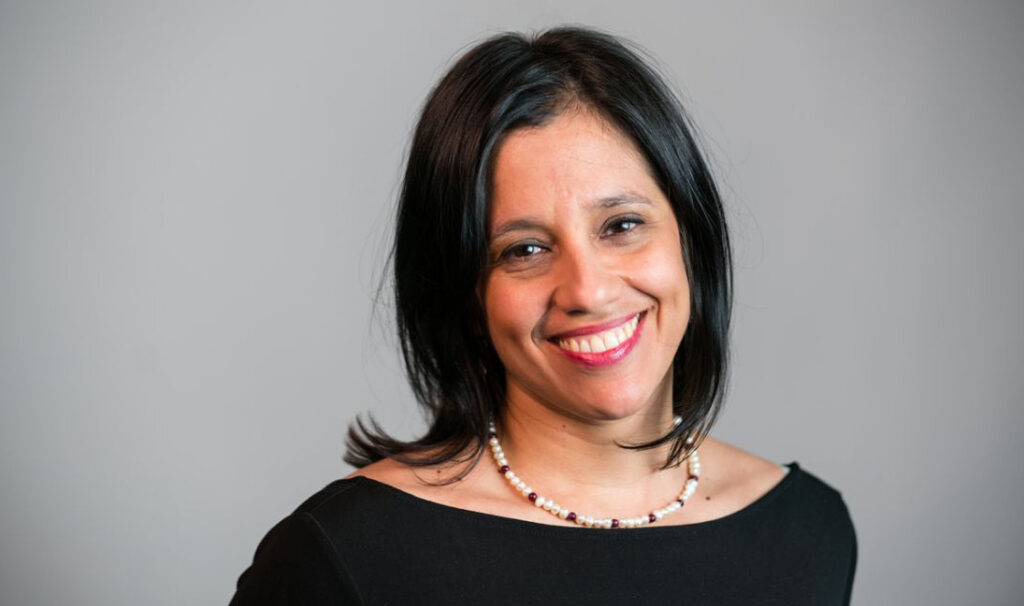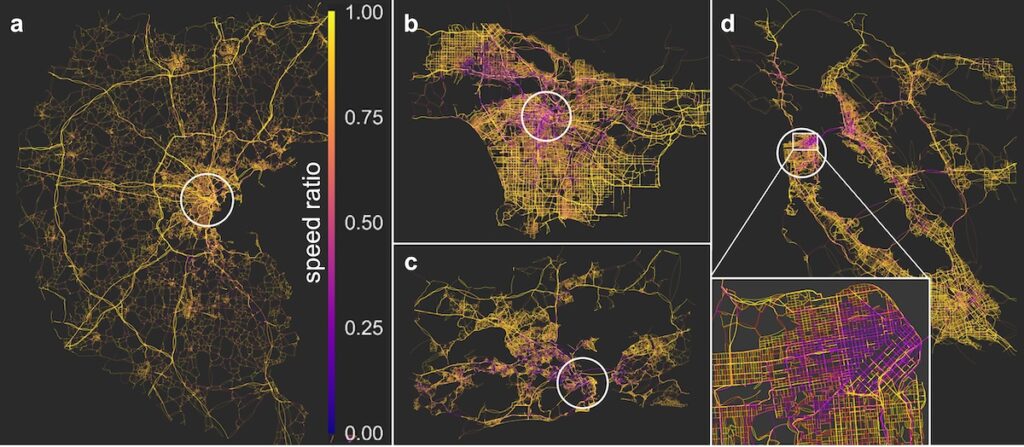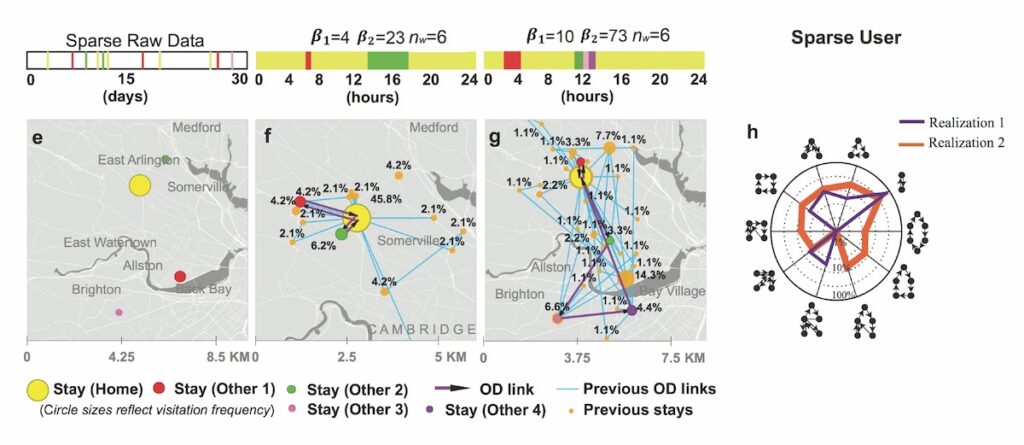Marta Gonzalez’s award-winning research harnesses digital data to improve cities
Data from mobile devices offers insights into diverse needs and enables cities to allocate resources more fairly.

In October, Associate Professor of City & Regional Planning Marta Gonzalez traveled to Turin, Italy, to accept the Lagrange Prize–Fondazione CRT, which is given annually in recognition of extraordinary scientific contributions to the understanding of complex systems across all disciplines. The award honored Gonzalez’s pioneering use of network science to make cities more livable, sustainable, and equitable.
“She is able to transform huge amounts of digital data into practical solutions with significant social impacts . . . addressing challenges such as urban traffic management, electric vehicle integration, and the prevention of catastrophic forest fires,” said Alessandro Vespignani, president of the Institute for Scientific Interchange, which coordinates the prestigious international prize.
Gonzalez, who also holds appointments in the Department of Civil and Environmental Engineering and the Lawrence Berkeley National Laboratory, brings her expertise in statistical physics and network science to the study of the social life of cities. Gonzalez harnesses data from cell phones and other digital devices to understand how people move through the built and natural environments; using neural networks (AI), she can extrapolate from this data to predict mobility patterns in areas where not everyone is carrying a mobile phone. Her research makes a direct impact, informing planning decisions about transportation infrastructure, the location of urban services, climate adaptation, and pollution reduction.
“Cities face mounting challenges, from congestion and pollution to climate impacts and social inequities. These issues impact millions, driving the need for smarter city planning. Data science converts diverse data streams — mobility, energy, and social patterns — into actionable insights, enabling cities to adapt dynamically,” Gonzalez says.
Using digital data to improve the health of cities — and their inhabitants — worldwide

Gonzalez works with planners and municipal governments around the world to improve their cities. In Bogotá, Colombia, Gonzalez combined mobile phone and bicycle app data to understand the intersection of bicycle infrastructure mobility patterns. This led her to recommend an expansion of cycling infrastructure, especially in economically disadvantaged neighborhoods, to the city’s secretary of mobility. “This targeted approach benefits both the environment and underserved communities,” she says.
In California, Gonzalez’s research into mobility patterns using multiple data streams is informing the placement of charging stations for electric vehicles, which can accelerate their adoption. She also pioneered social network modeling around the switch to electric vehicles in the Bay Area, showing how it’s not only rebates or environmental concerns that move people to abandon fossil fuel-powered cars — “sometimes people adopt electric cars because their friends have.”
In Buenos Aires, Argentina, Gonzalez is using cell phone data to measure patterns of visiting city parks. “We’re trying to understand what conditions enable people to visit parks, and what could be done to give people more access.”
“The overall goal is to benefit public health, through reducing emissions and pollution and providing more access to parks and bicycles,” she says.
Network science can help us plan for disasters
Gonzalez’s research also intersects with planning for, and recovering after, natural disasters. Her data modeling for the city of Freetown in Sierra Leone enabled the Global Facility for Disaster Reduction and Recovery to prioritize which streets to rebuild in the aftermath of the 2017 landslides and floods there. “We were able to measure the number of travelers each street serves, pinpointing which were the most critical to rebuild,” says explains. This research into transportation resilience also pointed to opportunities to harden infrastructure or reinforce redundancies in strategic points of the road network in advance of future climate events.
This work in Freetown began as a class research project in Gonzalez’s graduate course on human mobility and networks. Gonzalez involves master’s and doctoral students from many disciplines in her research, training them in data analysis.
A recent study focusing on wildfire-urban interface zones improves the safety and efficiency of emergency evacuations. The project integrates traffic simulation, real-time mobility tracking, advanced algorithms, and cloud-based communication to provide both advance and real-time, dynamic data about evacuation routes and evacuation center allocation.
Research reveals general truths about patterns of urban mobility

Gonzalez’s methods also led to the discovery of more general mobility laws, which were published in a heavily cited paper in Nature. Even if there are hundreds of possible routes a person could take to connect home, work, and other places they visit regularly, mobile phone data revealed that the vast majority use only a handful of networks daily. “That simplicity of the way people travel, the high degree of temporal and spatial regularity, was a very important discovery and was surprising,” she says.
Gonzalez points out that, beyond efficiency, data science fosters inclusivity. Traditional engineering plans often overlook marginalized communities, but data from mobile devices and spending patterns offers insights into diverse needs and enables cities to allocate resources more fairly.
“This isn’t just about technology; it’s about enhancing quality of life,” says Gonzalez. “By adopting these approaches, cities can ensure they grow sustainably, creating adaptable spaces that serve residents today and in the future.”